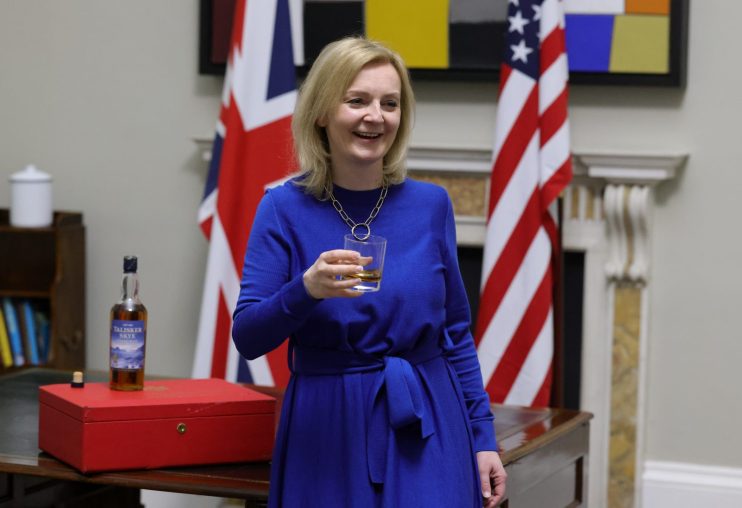Liz Truss drops any hope for UK-US trade deal as Global Britain’s Brexit efforts shift to Gulf, India, Australia and Japan

The Prime Minister has stressed that her trade priority is post-Brexit striking deal with the Gulf states and India, and joining a trade pact with nations including Australia and Japan.
At the same time, Liz Truss conceded that negotiations for free trade deal with the US will not restart for years as she flew to New York ahead of a meeting with Joe Biden.
But she heavily downplayed the chances of talks even resuming to get the comprehensive deal with the States that was billed by Brexit backers as a major benefit of leaving the EU during the referendum.
Truss, a former Brexit opponent who has switched to becoming a supporter, said the deals with Delhi and other allies are “our trade priorities” ahead of talks with the US president at a United Nations summit on Wednesday.
“There aren’t currently any negotiations taking place with the US and I don’t have an expectation that those are going to start in the short to medium term.”
Liz Truss
Officials did not deny that Truss was effectively conceding it will be years before talks with the White House resume.
Biden has stalled on trade negotiations and, vocally proud of his Irish heritage, has raised concerns about the impact of Brexit and the Northern Ireland Protocol on the peace process.
The next presidential election is in 2024 and the more trade-focused Donald Trump may run again for the Republicans.
This morning, the Culture Secretary confirmed Truss will not be using her upcoming meeting with Joe Biden to try to secure a trade deal.
Michelle Donelan told Sky News: “The Prime Minister and the President will be meeting this week, they’ll be talking about a variety of different issues, including potential trade deals. So let’s see what comes out of that meeting.”
Pressed on the topic of the meeting, she said: “The purpose of this meeting is not to secure a trade deal. This is the first bilateral meeting between the newly elected prime minister and the president of the United States.”
Biden downplayed any deal
When Boris Johnson last visited the US as prime minister, Biden downplayed the chances of a deal with the UK as he warned against tampering with the “Irish accords” amid a row over the post-Brexit protocol.
Ms Truss named among her priorities the Comprehensive and Progressive Agreement for Trans-Pacific Partnership (CPTPP), one of the world’s largest trading blocs which includes Australia, Canada and Japan.
The other she cited is the Gulf Co-operation Council, which includes Bahrain, Kuwait, Oman, Qatar, Saudi Arabia and the United Arab Emirates, and is the EU’s sixth largest export market.
Johnson and Indian Prime Minister Narendra Modi set deadline for striking a deal by Diwali, the Hindu celebration being held on October 23.
So far the UK and the US have been striking smaller state-by-state agreements, with Britain signing deals with Indiana and North Carolina.
But these are far less ambitious than the comprehensive free trade deal touted by Brexit supporters during the 2016 referendum.
Northern Ireland issue
One of the issues facing future talks is Ms Truss’s threat to override parts of the Northern Ireland Protocol, which the EU says would break international law.
Senior figures in Biden’s Democratic party have warned a trade deal could be jeopardised by the UK single-handedly tearing up the agreement, which was part of the Brexit divorce deal.
While in New York, Ms Truss is also set to have talks with French President Emmanuel Macron and the EU’s Ursula von der Leyen, which are bound to prominently feature Brexit.
Ms Truss will meet Macron on Tuesday, before seeing Biden and Ms von der Leyen on Wednesday. She had been set to talk to the US President in Britain over the weekend as he visited for the Queen’s funeral, but the meeting was postponed.
Labour’s Shadow foreign secretary David Lammy, who was also attending Unga, said: “After being snubbed by the Biden administration within her first weeks in office, Liz Truss urgently needs to wake up to the damage her reckless approach to foreign policy is doing to the UK’s national interest.
“The Prime Minister must use the UN General Assembly to bring the UK back in from the cold and begin rebuilding our country’s diplomatic influence.”